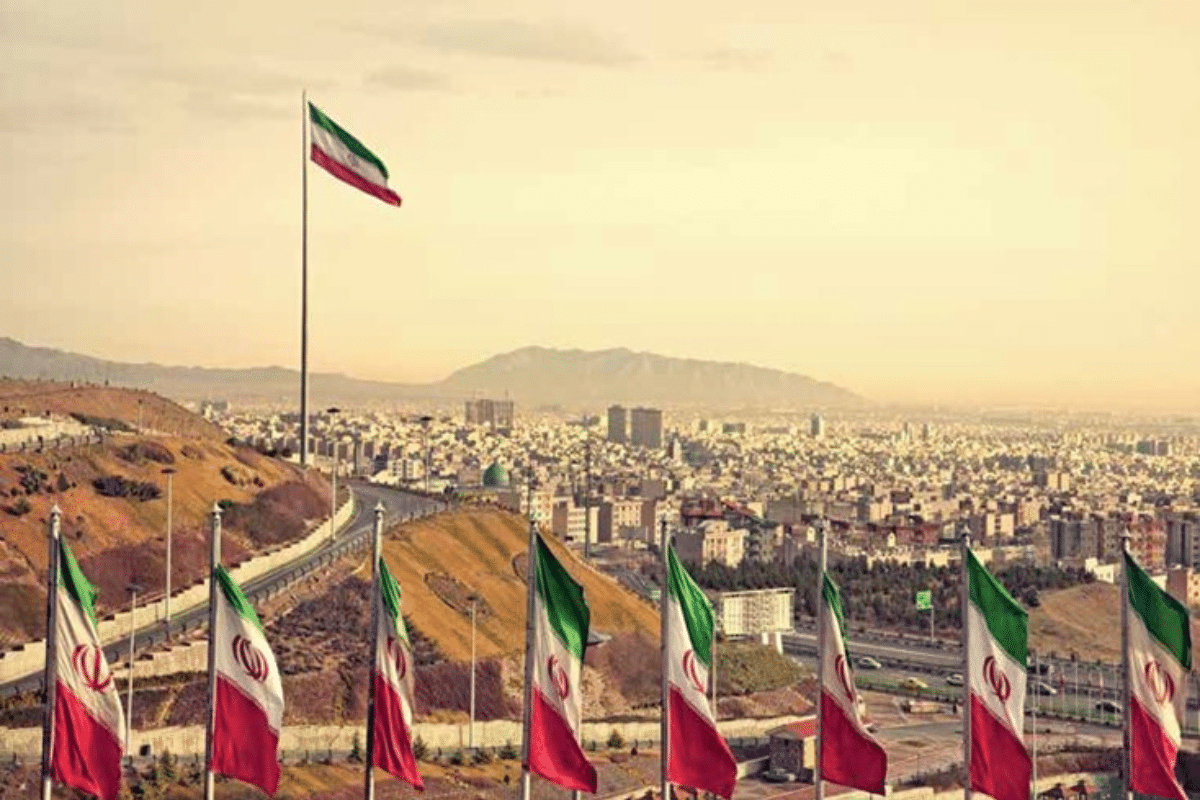From refugee past to EB-5 professional: One man’s perspective on Migration


An article written by Abteen Vaziri, President & CEO of Uptown Companies for the IM Yearbook 2023.
At a time when Iran is rocked by the biggest wave of unrest and anti- regime demonstrations it has seen in years, Abteen Vaziri recalls how he had fled the country more than three decades ago. Vaziri, who is today a key figure in the US EB-5 industry, says due to his refugee past he has a unique perspective on migration that many of his fellow practitioners lack.
One evening in 1989, Abteen Vaziri’s mother told him that the family would flee Iran.
He was nine years old and in the middle of school exams. He had studied a lot and didn’t want to leave his home in Tehran to not miss the test. But he didn’t have a choice, although he didn’t understand what was happening: “It was odd that while my parents feared for their lives, I worried about school,” he recalls.
Today, Vaziri sits in an office in New York City. He is the Managing Director of Brevet Capital, an investment firm which has about $2billion of assets under management. In addition to overseeing the business operation, he manages one of Brevet’s five funds: the Brevet Capital Immigration Fund, an EB-5 compliant fund.
Vaziri’s family first attempted to leave Iran in 1979 when the Islamic Revolution shook the world. The revolution turned Iranian society upside down and ended with the establishment of the world’s first Islamic state. Mohammad Reza Shah Pahlavi, the leader of Iran since 1941, left the country in January 1979 and Ayatollah Ruhollah Khomeini, a previously exiled opponent of the Shah, returned and took control of Iran.
Prior to the revolution, Vaziri’s father was an officer in the Iranian air force. Expecting a brutal crackdown on opponents and weighing their options, his parents – like many others – wanted to get out of Iran. “We sold all our assets and paid $15,000 to a group of smugglers who were supposed to take us by horse back and camel to the border and into Pakistan. My aunt, my uncle and their son went first, but my aunt got malaria in Pakistan and died. My parents were so distraught and didn’t want to leave Iran anymore. So, the smugglers pocketed our money and passports while we stayed behind.”
After the regime change, Vaziri’s father was court-martialed and sentenced to death. However, while he was in prison, Iraqi forces launched a full-scale invasion of Iran, beginning the Iran-Iraq War in September 1980. Suddenly, military personnel were needed. “My dad was given a pardon but in return he had to join the air force again. He was given back his job in military logistics, moving and coordinating equipment, supplies and troops.”
In 1989, when the war ended, Vaziri’s father finally managed to obtain a fake passport. As a military officer, he wasn’t allowed to have a real passport. “He then escaped to Austria and later travelled to Germany. My mother, my sister and I also left Iran, but we first went to France. We then joined my father in Aachen, Germany, where we were accepted as political refugees,” Vaziri explained.
Vaziri arrived in Germany in November 1989, which at that time was experiencing its own watershed moment. “I remember that it was all over the news that the Berlin Wall had come down. Until today, every time I see pictures of the fall of the Berlin Wall, I equate that in my own mind to our own liberation from Iran.”
However, at first, things didn’t get much easier for Vaziri. “I did not speak the language, and everything was new and different,” he said. Just when he had started to settle in, another move was on the cards: In 1991, the family relocated to the US after they had been granted a green card as political refugees.
They lived in Los Angeles for the first four years, then they moved to Texas where Vaziri completed high school. University followed and after first obtaining a degree in computer sciences, he also obtained a Master of Business Administration in Finance and later a law degree in New York.
Initially, Vaziri worked in the financial industry, but as often in life, a coincidence led him to his current career. He went for a job interview for a position as a portfolio manager, but during the interview, he was informed that he won’t be managing a portfolio of assets, but a portfolio of investors. “Back then, I was familiar with the programme because one of my cousin’s used the Canadian programme to emigrate from Iran to Canada. I got the job immediately.”
Vaziri worked for the North Texas EB-5 Regional Centre (NTRC) for just under four years. During this time, he managed the largest-ever EB-5 project in the state of Texas. He then got recruited by Greystone EB5 Holdings, a very large institutional lender, to help build their EB-5 practice, and in 2018, he joined Brevet to set up their EB-5 practice, a position he holds until today.
Although refugees leave in a situation of emergency with much less planning than EB-5 investors, he says he has a better understanding of his clients’ situation than many of his peers in the EB-5 industry. “It’s helpful to not only know the legal and the business side of the industry, but also to be able to relate to the human story. There are a lot of emotions involved when people are moving to another country.”
Vaziri also sits on the board of directors of IIUSA, the trade association for the EB-5 regional centre programme. “When I ran for the board of directors at IIUSA in 2018, there wasn’t a single person on the board who was an immigrant,” he says. Today, the situation is different as he has been joined by another board member originally from Turkey.
But Vaziri does not want to stop there. He wants more change and has fresh ideas: “In the US, there are about 70.000 to 80.000 EB-5 investors, and they don’t really have a voice. While there are several investor associations, they are very fragmented. I think there’s a need for a membership-based investor organisation,” he explains.
When the EB-5 progamme lapsed in 2021, there was a huge vacuum of information and a lot of uncertainty among investors. “But investors need a reliable source of information and an independent body they can turn to,” he says.
Vaziri envisions a membership- based investor organisation would also be beneficial to the entire EB-5 industry and could be a “huge support in the next battle with Congress”. Vaziri concludes: “In our industry, we often get so bogged down with regulations, with fund raising and yes, also, with competing. We easily forget about the end users, but without the investors our industry wouldn’t exist.”

